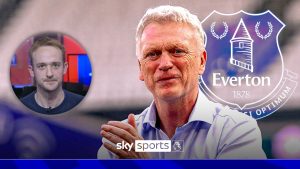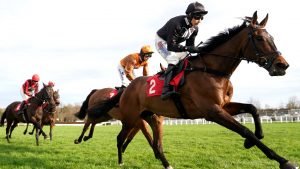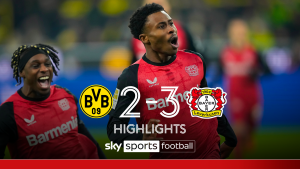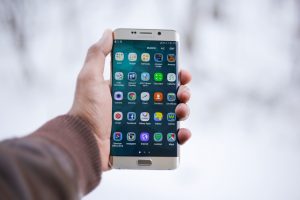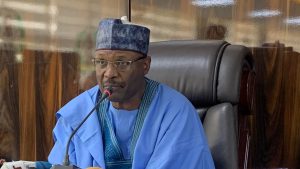NBA’s return to play: Why Kyrie Irving and other players are hesitant
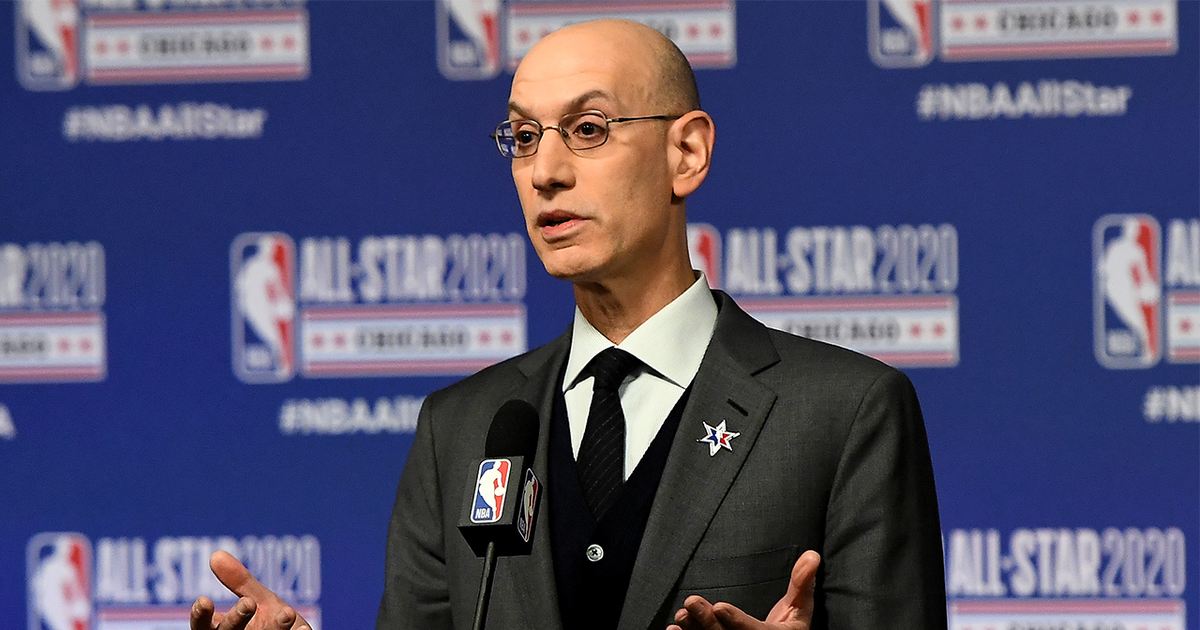
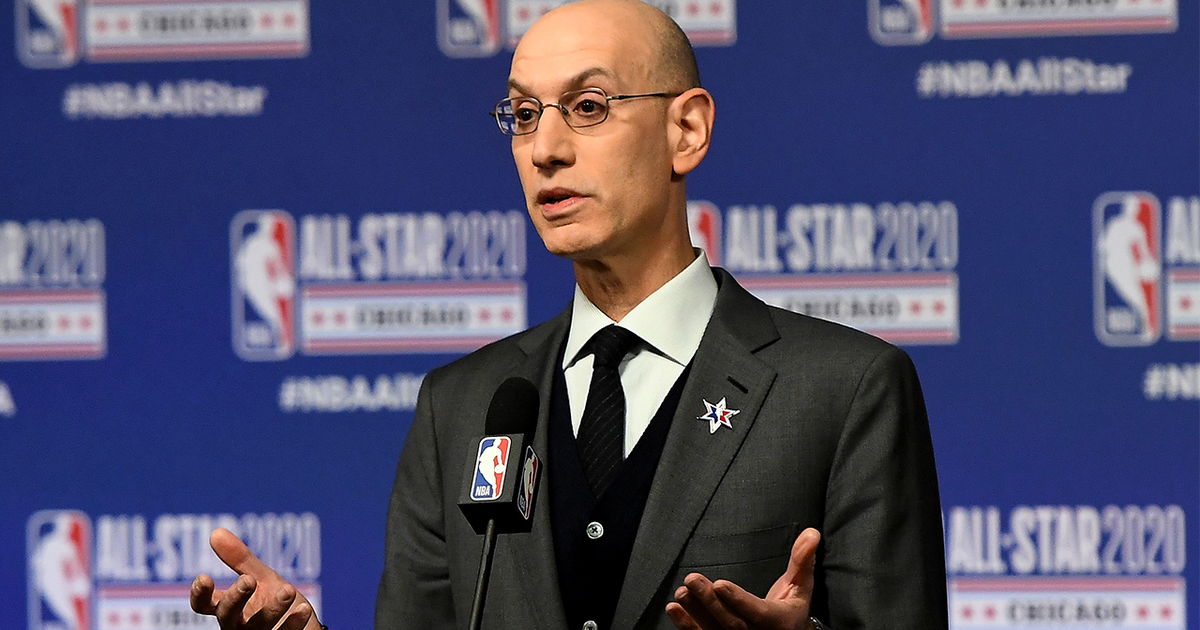
The NBA season is set to resume at the end of July — but it might not be smooth sailing between now and then.
The NBA is targeting a slightly earlier date for the restart of the season in Orlando, sources tell ESPN: July 30.
— Adrian Wojnarowski (@wojespn) June 11, 2020
The NBA would become the first of the three major sports leagues that was suspended due to the COVID-19 pandemic – MLB and the NHL included – to return to play.
However, while that might be welcome news for NBA fans, there has been some pushback by players along two lines: the risk of playing amid the pandemic, and those who believe resuming play now would distract from the very real issues America faces.
Reports first surfaced this week that over 100 players were hesitant to make the trip to Orlando and remain in an isolated bubble for potentially the next several months.
ESPN story on growing uncertainty among NBA players about entering Orlando bubble and allowances league plans to make for those deciding to stay home. https://t.co/tW7p8sKloH
— Adrian Wojnarowski (@wojespn) June 10, 2020
According to NBA insider Adrian Wojnarowski, the combination of the isolated nature of the NBA “bubble” in Orlando, as well as the lack of incentive for players on teams not favored to win a title, has a faction of players struggling to find a reason to return for the 2019-20 season.
As players have started to come to terms with the restrictive and isolated nature of the Orlando bubble — including no visitors until after the first round of the playoffs, nearly seven weeks after the opening of mid-July training camp — there has been increased dialogue about the prudence of restarting the season for a number of players, especially those on non-championship contenders, sources said.
Executives and coaches around the NBA have had significant concerns about how players will adapt to an environment unlike any they’ve ever experienced and how those hurdles could impact the sustained competitive drive for teams. Many have worried, too, especially on teams that aren’t title contenders, whether some players will start to seek avenues to bypass the resumption altogether.
“As players have started to come to terms with the restrictive and isolated nature of the Orlando bubble — including no visitors until after the first round of the playoffs, nearly seven weeks after the opening of mid-July training camp — there has been increased dialogue about the prudence of restarting the season for a number of players, especially those on non-championship contenders, sources said.
Executives and coaches around the NBA have had significant concerns about how players will adapt to an environment unlike any they’ve ever experienced and how those hurdles could impact the sustained competitive drive for teams. Many have worried, too, especially on teams that aren’t title contenders, whether some players will start to seek avenues to bypass the resumption altogether.”
Further complicating the matter is the fact that while Disney employees will be subject to special rules and regulations, they will not be required to remain in the bubble for the duration of the NBA season, which NBC’s Tom Haberstroh expanded upon on Thursday.
Key component of NBA restart plans as cases surge in surrounding area:
Disney support staff, as of now, will NOT be subject to NBA’s bubble protocols with daily testing/quarantine. They are free to go in and out of campus, per a Disney union official.https://t.co/unK5Fp38qD
— Tom Haberstroh (@tomhaberstroh) June 12, 2020
“Disney workers have not been told to quarantine on campus, according to Eric Clinton, president of Disney’s labor union, United Here Local 362, which represents custodians and ride operators. There will be protocols in place, however. At this point, Disney staffers will be required to wear a mask at all times. Beginning June 14, per the latest labor agreement between Disney and the 38,000 members of Service Trades Council Union, Disney employees will be required to do a temperature check at a designated central location before proceeding to work. If the employee’s temperature is below 100.4, they will remain at work. If the employee’s temperature is at or above 100.4, the employee will be given “a cool-down period” and then undergo a recheck. If it remains at or above 100.4, the employee will be sent home.”
New Orleans Pelicans guard JJ Redick offered this retort:
So…there isn’t a bubble. https://t.co/ljLrsAbUhd
— JJ Redick (@jj_redick) June 12, 2020
As reports surfaced of players’ reservations, a robust discussion took place across the basketball landscape. In fact, NIAID Director Dr. Anthony Fauci, who has become something of the face of the United States’ fight against COVID-19, weighed in, saying he supports the NBA’s plan:
Dr. Anthony Fauci told @Stadium he is supportive of the NBA’s restart plan: “It’s quite creative.. I think they might very well be quite successful with it… They really wanted to make sure that the safety of the players was paramount.” pic.twitter.com/qwo5bCDrVt
— Shams Charania (@ShamsCharania) June 13, 2020
Former NBA center Kendrick Perkins spoke on the situation on ESPN’s The Jump on Thursday, saying he doesn’t faulting the players who are opposed to showing up in Orlando due to the health risks.
“You can’t knock a guy … for not wanting to go and play and participate because right now I think that the coronavirus has been overshadowed by the death of George Floyd, and civil rights, and the protesting. The coronavirus is still here, cases are still rising, people are still dying. Just think about it, one of our NBA brothers Karl Antony-Towns lost his mother to coronavirus. I can’t be mad at any player that wants to stay home and not participate during these trying times.”
.@WojESPN reports 40-50 players are pushing back on going to the Orlando campus. On teams that aren’t realistically playing for a title anyway, once a few guys say they won’t come, will that domino into even more players not wanting to go? pic.twitter.com/5vjEnMwWQO
— Rachel Nichols (@Rachel__Nichols) June 11, 2020
The isolation of the bubble is also a major concern of some players, who will be away from their families for at least a month and a half.
Shannon Sharpe likened the isolation to NFL training camp, but also understands it is an even higher level of isolation than he has experienced before in his football career.
I liked being secluded, I liked going to training camp. Now this is going to be extra, extra secluded because basically they are saying … no one in and no one out, especially family members, and then you really can’t leave the campus. So guys are like, ‘Hold on, wait a minute. I can’t leave at all? I can’t go to the store? I can’t go walk around?’ … You’re asking an awful lot. Basically, you’re putting people in an experiment. You’re putting them in a glass bubble for maybe six to eight weeks.
“I’m not holding it against the 40-50 players. Some people have real fears, conditions, or maybe they’ve had a birth of a child. I understand all of their concerns.”@ShannonSharpe on a group of NBA players being hesitant to return pic.twitter.com/hYgZ7V7jib
— UNDISPUTED (@undisputed) June 11, 2020
Of course, the idea of keeping the players, coaches and staff in the bubble is to keep the person-to-person contact at a minimum, which will obviously lessen the chances of spreading the virus if someone were to contract it.
Kevin O’Connor of The Ringer further detailed how the NBA plans to go about testing players and team members upon their arrival in Orlando, as well as the precautions that will be taken place if a player were to test positive for COVID-19.
“Upon arrival, all team members will be tested and then could be quarantined in their rooms for 36 hours. Daily testing will follow the quarantine period. The league is exploring the use of a saliva mouth swab to replace the uncomfortable deep-nasal swab often used for the coronavirus. If a player tests positive, they will need to quarantine for at least 10 days and have two negative tests before rejoining their team. The same is true if a player leaves the league’s Disney World campus, which will be closed off to the public. If a player leaves and returns, they will need to quarantine for at least 10 days and test negative twice before rejoining.”
Sources: All NBA team members arriving in Orlando will be tested and quarantined in their rooms for 36 hours. If a player tests positive, they must quarantine for at least 10 days and have two negative tests before rejoining their team.
More on @ringer: https://t.co/1xt188AIT3
— Kevin O’Connor (@KevinOConnorNBA) June 8, 2020
Yet as the conversation around the NBA’s return evolved, a second cause for concern has been raised by another group of players, led by Kyrie Irving.
Friday morning, Chris Haynes of Yahoo! Sports revealed that the death of George Floyd and the resulting protests, as well as the current social climate, have also caused players to be wary of a return to play.
“The unease about relocating to a quarantined campus during the COVID-19 pandemic was already viewed as hazardous and unnecessary to many players. But because of the George Floyd tragedy and the powerful movement for racial justice that’s sweeping the nation, some players believe it’s bad optics for a league comprised predominantly of black men to be sequestered in one location for up to three months merely to entertain the masses and ease the league’s economic burden, sources said.”
Yahoo Sources: Significant number of players disappointed their voice wasn’t heard in decision to restart season, and others believe black players sequestered to entertain and ease league’s economic burden amid racial tension is bad optics. https://t.co/F4BiqWD6uQ pic.twitter.com/hhw8rGdLh8
— Chris Haynes (@ChrisBHaynes) June 12, 2020
Haynes explained that “several players have been reluctant to express their views in fear of opposing the superstars who are adamant about playing if proper safety measures are in place,” namely LeBron James and the president of the National Basketball Players Association, Chris Paul.
Bleacher Report’s Howard Beck further revealed that Irving is leading the charge in regards to the faction of players considering not finishing the season.
Adding to Taylor’s report: I’m told today’s conf call could involve up to 200 players. Also hearing that Kyrie Irving has been a driving force in organizing these calls, and in raising concerns over NBA’s bubble plan. https://t.co/0voQafmveO
— Howard Beck (@HowardBeck) June 12, 2020
Irving hasn’t played in months after undergoing shoulder impingement surgery on March 3 and was not slated to play in the bubble, but what makes the situation even more nuanced is that Irving is one of several vice presidents that make up the NBPA Executive Committee.
According to Haynes and Beck, Irving believes that the racial tension in America should be taken into account when considering resuming the season.
Apparently, he isn’t the only one.
There’s no singular conversation driving discussion among players now: It isn’t just the Black Lives Matter movement, or the coronavirus, or bubble limitations, or family concerns, or risk of injury, or money. Many players are discussing and weighing it all. https://t.co/2fqmUfgbNx
— Adrian Wojnarowski (@wojespn) June 12, 2020
And, Irving also isn’t the only superstar who is raising concerns regarding the racial tensions in America in correlation with entering the NBA bubble.
In an interview with GQ, Portland Trail Blazers superstar point guard Damian Lillard candidly discussed his views on police brutality.
.@Dame_Lillard shares his thoughts on the NBA coming back, his role in activism, and a story about the time the police destroyed his car. https://t.co/ih9wj81P5i pic.twitter.com/hign7k75Tr
— GQ Magazine (@GQMagazine) June 12, 2020
At one point in the interview, Lillard – a native of Oakland, California – discusses the idea of playing basketball amid the current climate across the United States.
I can’t speak for everybody but for me personally, I’m able to do my job more effectively when I’m in a good place personally. You know what I’m saying? And this is something that affects me personally. I’m one man. I make a lot of money as one man and I do things for a lot of people and my family. But I got a lot of people that live in Oakland and a lot of friends that are still in the neighborhood. I’m just connected to so many people that it’s like, how can I be consumed with a basketball game? Look at the lengths that we’re going to play a basketball game when there’s something so much greater going on. Something so much more meaningful going on, that really needs us. So I mean it’s a battle every day for me, man.
Former NBA player Stephen Jackson, who was friends with George Floyd and has been a prominent voice since his murder, echoed Irving’s sentiments that now is not the right time to play:
“Playing basketball is gonna do one thing. Take all the attention off the task at hand right now of what we’re fighting for.”
Stephen Jackson wants people to focus on getting justice after recent police killings of black people
(via @DaTrillStak5) pic.twitter.com/XUZKiL7a2k
— Bleacher Report (@BleacherReport) June 14, 2020
And Los Angeles Lakers big man Dwight Howard issued a statement to CNN via his agent saying that while he would love to win his first NBA championship, “the unity of My People would be an even bigger championship.”
Dwight Howard statement, provided by his agent, to CNN: pic.twitter.com/sk9uSSHlpp
— Jill Martin (@ByJillMartin) June 14, 2020
Yet other NBA players view playing as an opportunity to address those very same issues — like Houston Rockets guard Austin Rivers:
“Us coming back would be putting money in all our pockets. With this money you could help out even more people and continue to give more importantly your time and energy towards the BLM movement. Which I’m 100% on board with.”
Austin Rivers responds to Kyrie Irving being opposed to resuming the NBA season in Orlando. pic.twitter.com/D7A7jbpUE2
— ESPN (@espn) June 13, 2020
And there’s another wrinkle to all of this. No matter how noble the intentions of players like Irving, Lillard and Howard, canceling the rest of the season would have enormous consequences.
ESPN’s Bobby Marks, a former NBA executive, points out that not finishing the season would cost players collectively over a billion dollars, trigger several force majeure clauses in the league’s CBA, and force teams to negotiate new television deals in a time of economic uncertainty, to say the least.
Players have the right to do as they choose. However, the economics on not playing are devastating:
?$1.2B in lost player salary (35% of total pay)
?NBA now having leverage to tear up the CBA and negotiate a new one.
?$2B lost in revenue to the league— Bobby Marks (@BobbyMarks42) June 13, 2020
And it’s not only executives who have an eye on that potential major fallout. Nate Jones, a player agent and marketer who has worked with superstars such as Kevin Durant, explained how canceling the season would have massive ripple effects:
There’s a domino effect that I just hope is being fully explained and understood. Season cancelled, local tv force majeure, NBA CBA force majeure, CBA ripped up, etc. Basically the most important NBA business agreements have to be renegotiated in middle of pandemic.
— Nate Jones (@JonesOnTheNBA) June 12, 2020
With the return to play set for seven weeks from Friday, the NBA and its players have a small window of time to come to an understanding on how to handle the bubble and the decision to play.
Stay tuned for more updates.


